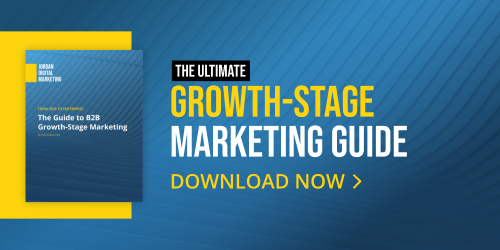Ellen Wood - JDM Impressions
In my last post, I dug into the state of voice search in 2023 and where we might be headed, especially given the dynamic state of AI and its effect on user behavior.
If you didn’t read that post, a TL;DR: voice search may be in its post-hype era, but it’s as important as it has ever been for eCommerce and local businesses – and stands to gain traction across industries as device technology and adoption evolves. Extra optimizations for organizations (especially schema, local SEO and mobile usability/speed) won’t compromise other types of SEO campaigns, will only improve your organic ranking, and will maximize your brand’s potential.
With that said, let’s look at some best practices for optimizing voice search in your SEO campaigns.
Step one: show up
There’s a thing called voice business registration that lets you register your business to be found on most virtual assistant devices and platforms like Google’s Nest, Amazon’s Alexa, Apple’s Siri, and Microsoft’s Cortana.
Registering on those platforms and making sure to frequently update your local directories and social profiles will make it extremely likely for your business to be shown in voice results. I recommend using a tool like Yext to help manage all those listings.
By making these updates and optimizing content frequently, your business is creating multiple opportunities for its products to be added to virtual assistant shopping carts and lists, even if the searcher/user hasn’t visited your website on a handheld or desktop device.
Optimize according to your vertical
For B2C campaigns with a local orientation (think: plumbers), make sure you’re optimizing local SEO frequently, particularly for page speed, mobile UX, accessibility, and voice search queries. The easier your page is for Google to crawl and identify, the more likely your business or product is to show up first when a consumer searches for your targeted keywords and products, in voice or otherwise.
For restaurants, remember that most voice searchers are quickly looking for something specific near them when they’re on the go. If a user asks, “Hey Siri, where can I get a vegan cheeseburger near me?” while driving, those local restaurants and food trucks are going to want to be discovered, and accessed quickly - allowing the user to add the location to their map/GPS straight from their smartphone, watch, connected device, etc.
If you’re in eCommerce and local search isn’t important, focus on the kind of queries users would convey through voice search. In this case, specific is good – users might not ask Siri “Where can I buy a raincoat?” because that’s too broad, but they might ask Siri “Where can I buy a black raincoat with a liner for 40-degree weather?”
As for B2B, well, B2B voice search optimizations have been rumored to be the next growth frontier since, like, 2017. Based on statistics and queries year-to-year since then though, it hasn’t yet become a thing. Leadership and upper management searches may use voice search for information, but they’re rarely using voice search as a means for transactional intent. Concentrate on awareness and education in the B2B space, and remember that nobody’s asking out loud if they can read a whitepaper.
Optimize for voice-specific behavior
Voice search behavior is inherently different than hands-on-keyboard behavior. Users are much more likely to search full sentences using voice search since it takes a fraction of the time that it would for them to type out that same question. I like to recommend that you start query optimizations by searching the target topic and keywords using voice search yourself. And once you get your voice-triggered SERPs, check out the People Also Ask section and Related Searches within the results page.
I voice-searched “what’s the best vegan SPF on the market right now?” and these were my results:
I can see that similar searchers are looking for ‘healthy’ sunscreens, sunscreens without ‘white cast’ and found another descriptive keyword ‘broad spectrum’ when looking at the same type of product.
From the related searches, I can also see the terms ‘cruelty-free’ and ‘plant-based’ as alternatives to my term ‘vegan’ when searching for sunscreen.
You’re going to find helpful insights into the users' questions about your business or products, and maybe even find a new angle or intent you weren’t already aware of.
The last tip with query structure: following the inverted pyramid style of writing can be really helpful when optimizing for voice search. You want to target the basic ‘who, what, when, where, and why’ type of long-tail keywords, typically as an H2, then give an easy, to-the-point answer directly after the query. Keep it conversational.
Optimize mobile for a win-win
Optimizing your page for mobile makes it likelier you’ll show up in the SERPs for voice searches. The better mobile-optimized your page, the better the page speed, paired with killer content and query-type keywords throughout the post, the more likely you are to land a spot in that top 3 for voice search results.
Bonus tip: FAQs FTW
Lastly, consider an FAQ section if it fits into the style and theme of your page. This is a literal list of questions and answers that, if formatted correctly, can land you in the featured snippet for your topic. Not only in regular SERPs, but in voice results as well – since more than 80% of voice search answers on Google Assistant are pulled from the top three search results.
Thanks for reading! And remember, we’re here to chat if you have any questions about voice search or other marketing topics - just drop us a line to get rolling.
Tags:
Jul 11, 2023 9:28:13 AM



-Feb-02-2026-08-01-41-1973-PM.png?width=500&height=500&name=Regular%20Blog%20Hero%20(1)-Feb-02-2026-08-01-41-1973-PM.png)

